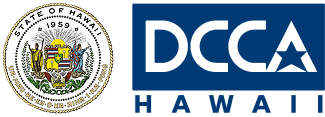Water and Wastewater Services
Not all water and wastewater companies are the same; some are regulated, and some are not.

About Water and Wastewater Services
Water and wastewater treatment services are provided by either city or county government agencies, also known as municipal service providers, member cooperatives, or private companies. Private investor owned utility companies use investor resources to build the infrastructure and facilities that allow them to provide water or wastewater services to their customers. Only investor owned companies are regulated by the state Public Utilities Commission (PUC).
Before providing services, changing rates, or altering terms of service, regulated companies must get approval from the PUC. These regulated water companies provide water to their customers by pumping it from underground wells. Water is then treated for potable use or daily use and drinking, and is then stored in tanks or reservoirs until it is distributed to paying customers. Regulated wastewater companies, on the other hand, collect wastewater from customers and transport it through sewer lines to a treatment plant. At the treatment plant, wastewater is treated to remove pollutants through the use of various chemicals and filters. The treated wastewater cannot be used for drinking or other daily use but it can be used for irrigation purposes such as watering a nearby golf course. There are some privately owned companies, however, that do not always treat the wastewater that they collect. Sometimes sewage is routed by a company to a municipal treatment facility and then processed there.
Your Water and Wastewater Bill
In some instances, your wastewater bill may be calculated by the amount of water that is used at your home or business. Some bills are calculated this way based on the idea that the amount of wastewater you put into the sewer system correlates to the amount of potable water that you use during your billing cycle. However, there are some companies that are unable to measure wastewater flows and charge their customers a flat monthly rate instead.
Occasionally, water and wastewater companies will include in their tariffs an Energy Cost Adjustment Factor. If approved by the PUC, this factor allows a utility to make adjustments to their rates that allow them to recover fluctuating expenses related to providing services that are beyond their control, such as fuel costs charged by electric companies. See a sample bill below from Hawaii Water.
- Billing date
Date your bill was printed - Account number
Your 10-digit account number - Bill message
This is where important messages will appear - Contact information
Your local Customer Center - Summary of your account
Current charge and previous balance information - Current charges
- Prior balance and payment
- Amount due
The amount that you owe - Service address
Address of service location - Service dates
The beginning and end of the billing period for service - Service charge
Monthly charge based upon the size of water meter - Quantity charge
Measured in units of 1,000 gallons - Power cost adjustment
Electricity cost - Usage history
Thirteen months of consumption history - Meter and reading information
- Portion of bill to return with your payment
- Address to remit payment
Regulated Water and Wastewater Services
There are a number of companies providing water and/or wastewater utility service on throughout Hawaii. What follows is a comprehensive list of those companies.
Hana Water Company, Inc. (Maui)
Hana Water Resources, Inc. (Maui)
Hawaii Water Service Company, Inc. – Kaanapali Operation (Maui)
Hawaiian Beaches Water Company, Inc. (Hawaii)
KRWC Corporation, dba Kohala Ranch Water Company (Hawaii)
Kapalua Water Company, Ltd. (Maui)
Kaupulehu Water Company (Hawaii)
Kealia Water Company Holdings LLC (Maui)
Kilauea Irrigation Co., Inc. (Kauai)
Laie Water Company, Inc. (Oahu)
Lanai Water Company, Inc. (Lanai)
Launiupoko Irrigation Co., LLC (Maui)
Launiupoko Water Co., LLC (Maui)
Molokai Public Utiltiies, Inc. (Molokai)
North Shore Water Company, LLC (Oahu)
Olowalu Water Company, LLC (Maui)
Waikoloa Water Company, Inc., dba West Hawaii Water Company (Hawaii)
Wai’ola O Moloka’i, Inc. (Molokai)
ATC Makena WWTP Services Corp. (Maui)
Hawaii-American Water Company, Inc. (Hawaii Kai Operations) (Oahu)
Hawaii-American Water Company, Inc. (Mauna Lani Operations) (Hawaii)
Hawaii Water Service Company, Inc. – Pukalani Wastewater District (Maui)
HOH Utilities, LLC (Kauai)
Kapalua Waste Treatment Company, Ltd. (Maui)
Kaupulehu Waste Water Company (Hawaii)
Keauhou Community Services, Inc. (Hawaii)
Kukui’Ula South Shore Community Services (Kauai)
Manele Water Resources, LLC (Lanai)
MOSCO, Inc. (Molokai)
Turtle Bay Wastewater Treatment, LLC (Oahu)
Waikoloa Sanitary Sewer Company, Inc. dba West Hawaii Sewer Company (Hawaii)
Waimea Wastewater Company, Inc. (Hawaii)
Aqua Puhi, LLC, dba Puhi Sewer & Water Company (Kauai)
Kalaeloa Water Company (Oahu)
Kona Water Service Company (Hawaii)
Princeville Utilities Company, Inc. (Kauai)
Punalu’u Water & Sanitation Corp. (Oahu)
South Kohala Water Corporation, fka South Kohala Wastewater Corp. (Hawaii)
Waikoloa Resort Utilities, Inc., dba West Hawaii Utility Company (Hawaii)
Municipal Water Service and Listing of Providers
The Hawaii Public Utilities Commission does not regulate municipal water and wastewater utility services. If your services are provided by local city or county governments and you have a complaint regarding your bill or service, contact your municipal water or wastewater provider.
City and County of Honolulu – Board of Water Supply
County of Hawaii – Department of Water Supply
County of Kauai – Department of Water
County of Maui – Department of Water Supply
City and County of Honolulu – Department of Environmental Services, Wastewater Management Division
County of Hawaii – Department of Environmental Management; Wastewater Division
County of Kauai – Department of Public Works; Wastewater Management Division
County of Maui – Department of Public Works and Environmental Management, Wastewater Administration
Federal Water Laws
The United States Congress passed two very important laws that have shaped water treatment and distribution throughout the country.
The focal point of the Safe Drinking Water Act (SDWA) was water that is or may be used for drinking, regardless of whether it is from above ground or underground sources. It authorized the Environmental Protection Agency (EPA) to establish water safety, purity, and health related standards, and required all owners and operators of public water systems to comply with these standards. Today, state governments assume these responsibilities by enforcing the same standards established by the SDWA.
The Clean Water Act (CWA) of 1977 was an amendment to the Federal Water Pollution Control Act of 1972. This law established the basic structure for regulating the discharge of pollutants into United States waters. The law gave the EPA authority to set effluent, or discharge, standards on an industry basis and to continue water quality requirements and standards for all contaminants in surface waters. The law also makes it unlawful for any person or organization to discharge any pollutant from a point source into navigable waters without a permit obtained under the CWA.
